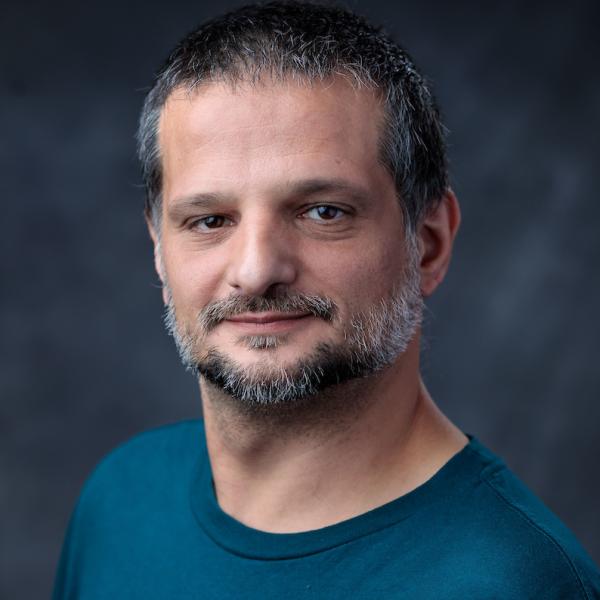
Dr. Karlos Arregi's research interests are in syntax, morphology, and their interfaces with phonology and semantics. A central question in this work is the extent to which grammatical properties of linguistic expressions can be explained in terms of syntax or in terms of principles that regulate its interface of syntax with other modules of grammar. His research tries to illuminate these aspects of linguistic theory by drawing data mostly from Basque and Spanish, as well as other languages such as Washo. Specific topics Dr. Arregi has worked on include syntactic and postsyntactic word formation (especially verbs), agreement and case, clitics, ellipsis, the syntax and phonology of stress, and switch reference.
Recent Publications
Books:
- Karlos Arregi and Andrew Nevins. 2012. Morphotactics: Basque auxiliaries and the structure of Spellout. Springer.
Selected Articles/Chapters:
- Karlos Arregi and Emily A. Hanink. 2022. Switch reference as index agreement. Natural Language and Linguistic Theory 40:651–702.
- Karlos Arregi, Itamar Francez, and Martina Martinović. 2021. Three arguments for an individual concept analysis of specificational sentences. Natural Language and Linguistic Theory 39:687–708.
- Karlos Arregi and Asia Pietrasko. 2021. The ups and downs of head displacement. Linguistic Inquiry 52:241–289.
- Karlos Arregi and Andrew Nevins. 2018. "Beware Occam's syntactic razor: Morphotactic analysis and Spanish mesoclisis." Linguistic Inquiry 49:625-683.
2020-2021 Course Offerings
Morphology (LING 21000) - Autumn 2020
Looking at data from a wide range of languages, we will study the structure of words. We will consider the nature of the elements out of which words are built and the principles that govern their combination. The effects of word structure on syntax, semantics, and phonology will be examined. We will think critically about the concepts of morpheme, inflection, derivation, and indeed, the concept of word itself.
Placement Proseminar (LING 47850) - Autumn 2020
The Placement Proseminar is designed for linguistics Ph.D. students who are nearing completion of the degree and focuses strongly on the academic job search. The Placement Proseminar is normally taken by 5th and 6th -year doctoral students (assuming a 6-year program timeline) so that they complete the seminar prior to entering or as they are entering the job market. The weekly workshop-style seminar includes intensive work on the “core” application documents (c.v., job application letter, research statement, and statement of teaching philosophy); advice on choosing and preparing an appropriate writing sample; and job interview strategies and practice.
Morphology (LING 31000) - Spring 2021
This course is an advanced survey of topics in morphology examining current morphological theory through detailed analysis of a range of phenomena and readings from the primary research literature. The topics covered include blocking, inflectional features, syncretism, allomorphy and suppletion, and morpheme order.
2019-2020 Course Offerings
Syntax 1 (LING 30201) - Autumn 2019
Graduate student standing. Undergraduates with a grade of A or A- in Intro to Syntax may petition the instructor for admission. This course is an advanced survey of topics in graduate syntax examining current syntactic theory through detailed analysis of a range of phenomena and readings from the primary research literature.
Syntax Seminar: Control (LING 46000) - Spring 2020
Course Description- TBD
